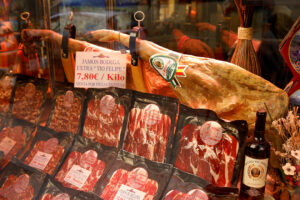EU sees more PHL projects as FTA talks loom
THE European Union (EU) might pursue more projects in the Philippines amid negotiations for a bilateral free trade agreement (FTA), according to an official with the EU Delegation to the Philippines.

By Justine Irish D. Tabile, Reporter
THE European Union (EU) might pursue more projects in the Philippines amid negotiations for a bilateral free trade agreement (FTA), according to an official with the EU Delegation to the Philippines.
On the sidelines of the EU-Philippines Business Conference on Wednesday, Minister Counsellor and Head of the Economic Trade Section Philipp Dupuis said the EU side expects more forms of trade-related cooperation to come up.
“In any case, there will be other forms of cooperation that are to the benefit of Filipino trade. All the more that we are now going into the FTA process,” Mr. Dupuis told reporters.
“We will see whether, around this, something may come up. But all this is not yet decided. These are the things that have to be further reflected upon in Brussels,” he added.
In March 2021, the EU launched the ARISE (ASEAN Regional Integration Support by the EU) Plus Philippines, which is a €5.8-million trade-related technical assistance project. It will run until Feb. 28, 2025.
“We see that the ARISE Plus has been a very successful project. But we will probably do more on a regional basis now,” he said.
“I think this is where I see this going. So, regional basis means ASEAN-wide,” he added.
According to Trade Undersecretary Allan B. Gepty, the EU has been one of the Philippines’ providers of technical assistance and capacity building in areas such as sustainable development, trade-related issues, and micro, small and medium enterprises.
“The EU has been one of the largest sources of foreign investment for the Philippines, with total net foreign direct investment amounting to $64 million and approved investments amounting to $13.4 billion in 2023,” he said.
“Notwithstanding, there is still much potential to be explored not only in market access for goods but also for services and investments, and other areas like innovation, digital trade, and energy,” he added.
Under the ARISE Plus project, the Philippines has been the recipient of programs and activities, Mr. Gepty said.
“The EU’s commitment to this project underscores the strong and enduring relationship between our regions,” he said.
“The ARISE Plus project is one of the important elements of our efforts to foster inclusive economic growth and enhance the international trade performance and competitiveness of the Philippines,” he added.
Mr. Dupuis said that the two parties made good progress in the first round of negotiations for the FTA in October. Talks for an EU-Philippines FTA had been on hold since 2017.
“In our eyes, from the EU side, we think it was a very good round, an excellent round. We made good progress on this. We have a good dynamic in this negotiation,” he said.
“We now look forward to the second round in February, which will take place here in Manila. I think that’s all we can say. It’s in the very early stages of the negotiations, but so far it has been a very good discussion with the Philippines,” he added.
According to Mr. Gepty, President Ferdinand R. Marcos, Jr. has said that the ultimate aim is to wrap up the negotiations for the EU-Philippines FTA by 2027.
Philippine negotiators set a target of concluding talks as early as 2026 to ensure no gap in trade privileges once the Philippines graduates to upper middle-income status.
The Philippines participates in the EU’s Generalized Scheme of Preferences Plus (GSP+), which is a special incentive arrangement for low and lower middle-income countries. It grants zero duties on 6,274 Philippine-made products.
“We are very much aware of course that from the time on when the Philippines graduates into an upper middle-income country, there’s another three years of transition time, and then the GSP Plus benefits go away,” he said.
“At the end of the day, we all wish to do this as quickly as possible, but it needs to be good. We cannot, in our eyes, sacrifice quality for speed. Because an FTA is to last, and it should be good,” he added.
The two parties are set to hold the second round of the negotiations on Feb. 11-13, in which they will discuss around 20 chapters, according to Mr. Dupuis.
He said a quality FTA is one that “gives real new market access to both sides, stable rules, and also has sustainability at its core.”
















